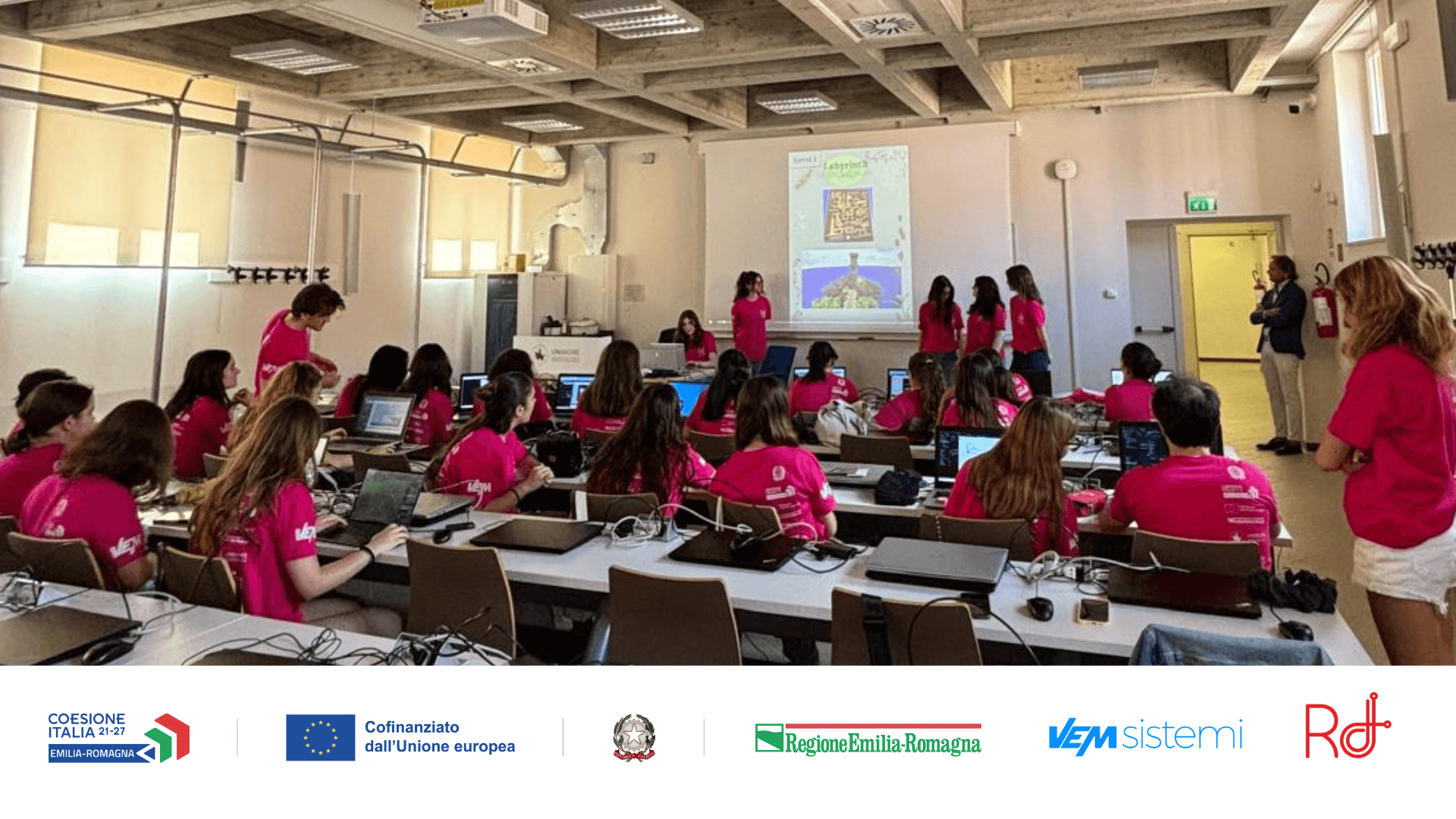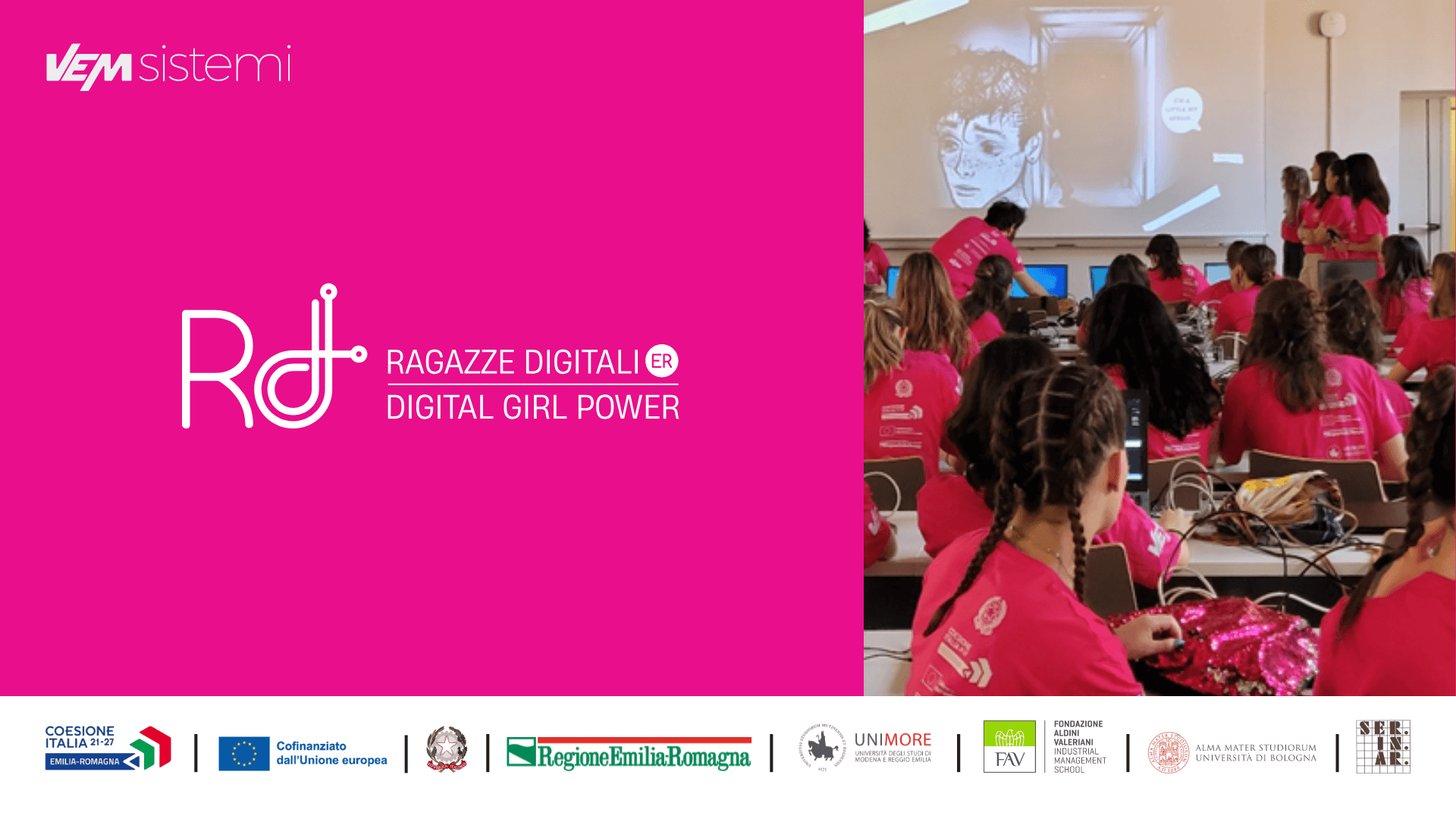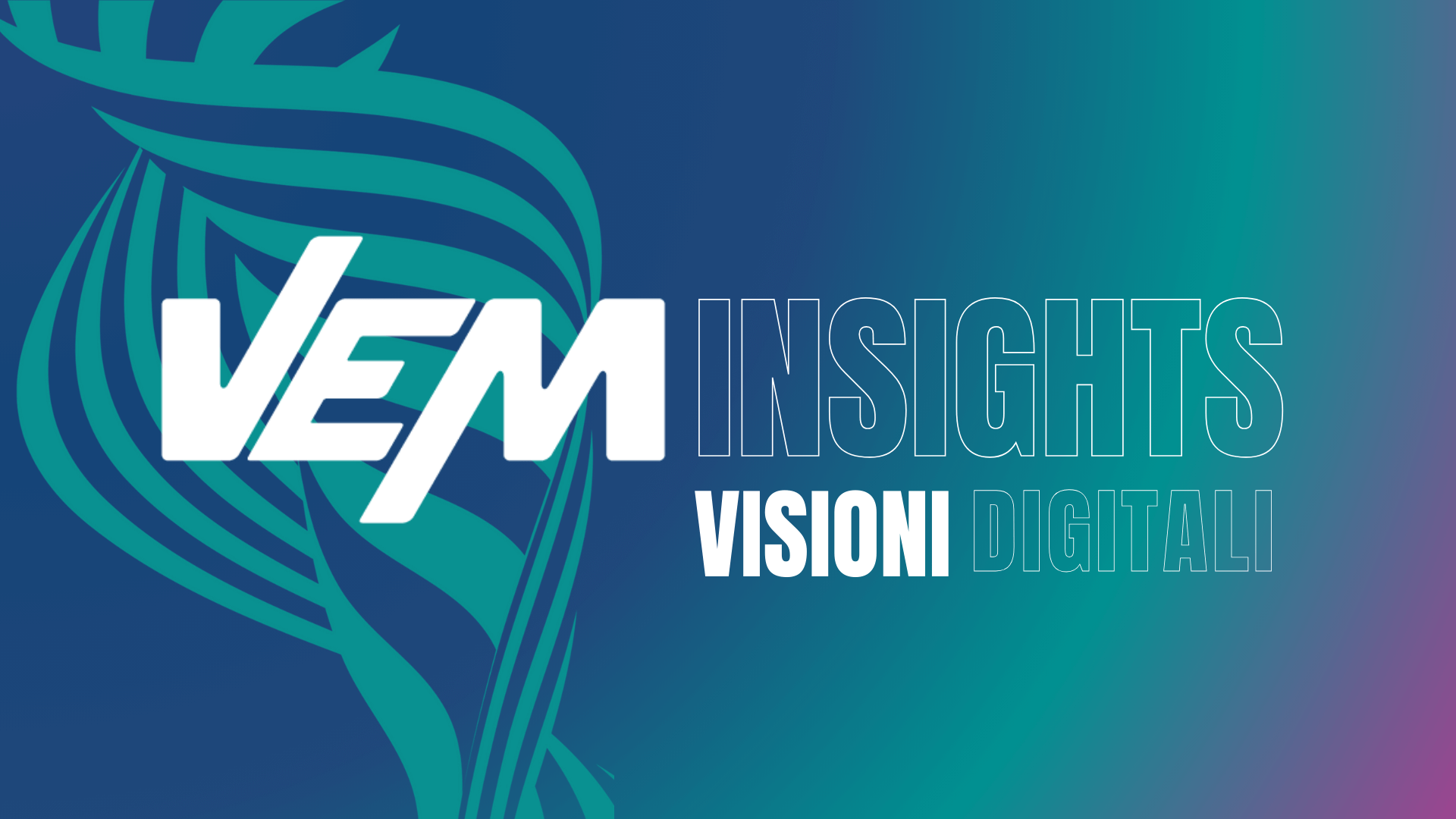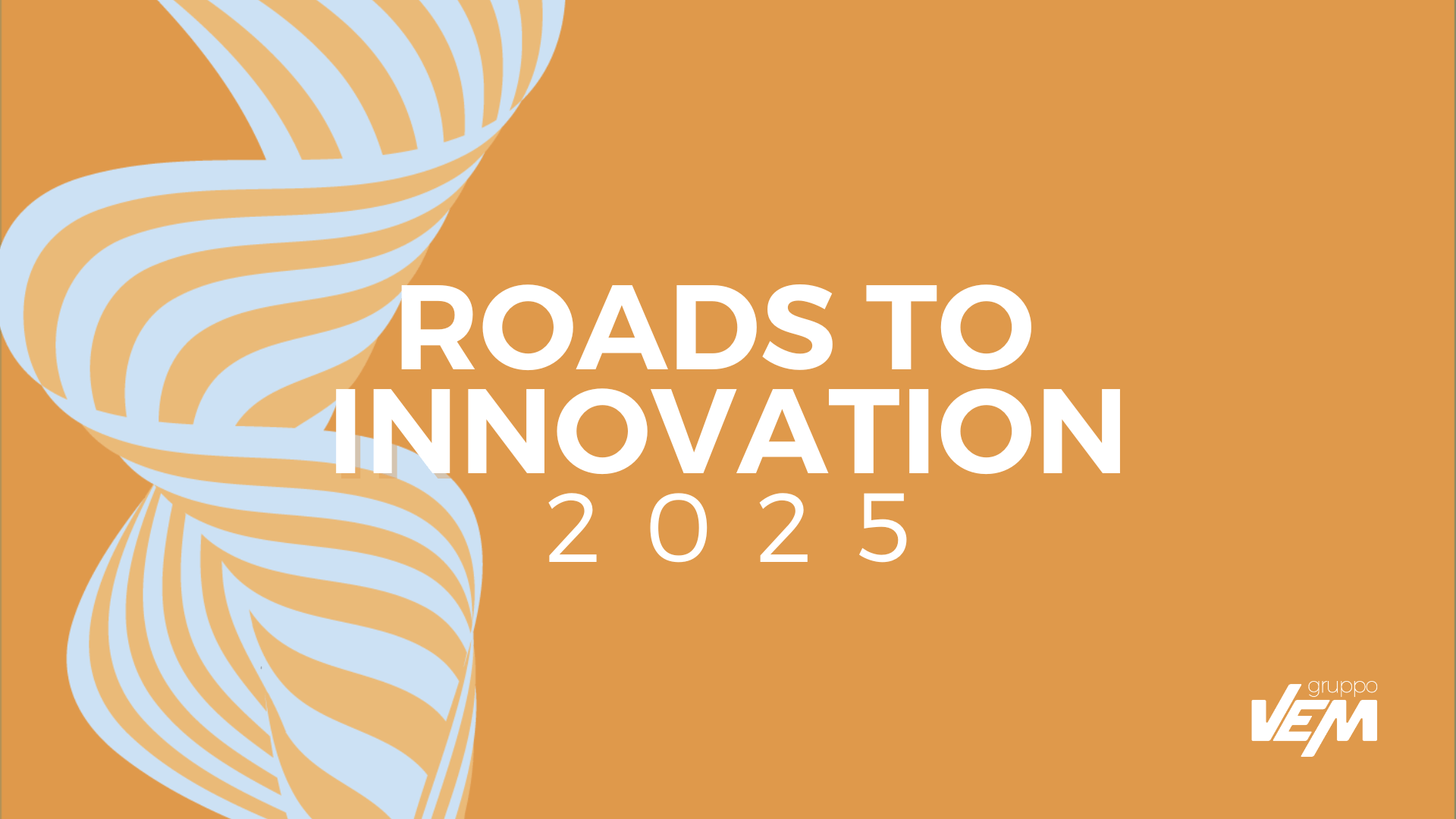The VEM Group, a partner of the initiative, reaffirms its commitment to building a more inclusive tech sector
Forlì, July 8, 2024 – VEM sistemi is a sponsoring partner of the Digital Girls 2024 initiative in Modena, Forlì, and Cesena, a proactive guidance project aiming to bring girls closer to the digital world and reduce the gender gap in STEM (Science, Technology, Engineering, and Mathematics) fields.
The initiative, completely free of charge and co-financed by European funds from the Emilia-Romagna Region, this year includes the organization of 26 Summer Camps. Five of these are supported by VEM sistemi and targeted at female students in their third and fourth years of high school, regardless of academic track.
The first two Summer Camps in Modena have just successfully concluded, with 45 girls enthusiastically taking part in the creation of 3D video games using the Unreal Engine platform, demonstrating the acquisition of impressive technical skills.
At the end of the presentations, all participants received their diplomas in the presence of Professor Claudia Canali from the Department of Engineering at Unimore, Emanuela Pezzi, General Director of Nuova Didactica, and Stefano Bossi, CEO of VEM sistemi.
Gabriella Attanasio, Technical Director of VEM sistemi, also participated in the Modena Summer Camp as a mentor. A graduate in Electronic Engineering in 1992, she is now Vice President of VEM sistemi and leads the company’s technical division, which consists of over 250 engineers. She shared valuable advice and her personal journey with the girls, showing how rewarding and fulfilling a career in the ICT sector can be.
The upcoming Summer Camps will take place in Modena from August 28 to September 12, and in Forlì and Cesena from September 2 to 13. Registration is still open for the Modena camps.
As confirmed by a global study conducted by UNESCO, only 30% of girls choose a STEM educational path, leaving them a minority in Industry 4.0 fields, despite being in the midst of a technological revolution facing a shortage of specific digital skills. There is a growing need for competent professionals to meet the upcoming changes. Yet, despite the high demand, the number of women responding is less than half that of men. The Digital Girls ER project aims to counter this trend by addressing stereotypes and obstacles that still limit female participation in technical and scientific education. To explore and better understand these dynamics, the learning approach includes educational and orientation workshops that emphasize proactivity, active participation, and hands-on experimentation, along with guided visits to centers of technological excellence in Emilia-Romagna and a variety of seminars, awareness, and outreach activities.
“The gender gap in the tech sector is a persistent and complex issue that demands focused attention and intervention. Despite progress in many areas, women remain underrepresented in STEM fields, particularly in technical and leadership roles. To encourage more girls to pursue tech careers, we must implement targeted strategies that inspire, support, and equip them with the tools to envision a possible and rewarding future in the tech industry. That’s why, following the success of our VEM4Girls project, we enthusiastically joined this new initiative. It clearly reflects the VEM Group’s tangible commitment to helping close the gender gap,” said Stefano Bossi, CEO and General Manager of VEM sistemi.
“The significant growth of the Digital Girls project over time demonstrates the potential to establish a replicable summer camp format across different areas, with the involvement of the university ensuring the quality of the educational experience,” commented Professor Claudia Canali, from the ‘Enzo Ferrari’ Department of Engineering and scientific coordinator of the project for Unimore.
Digital Girls ER is a project developed under the Data Valley Bene Comune – Emilia-Romagna Digital Agenda 2020–2025. The initiative stems from an experience that began in 2014 at the local level through the University of Modena and Reggio Emilia, supported by the Modena Foundation, together with EWMD (European Women’s Management Development), a non-profit organization promoting professional development for women in the workplace. The project was later expanded to the Cesena campus of the University of Bologna.
Only through continuous and concerted efforts will it be possible to reduce the gender gap and build a more inclusive and innovative tech sector for all.












